Discover a project helping kids stay connected with each other & nature during Covid
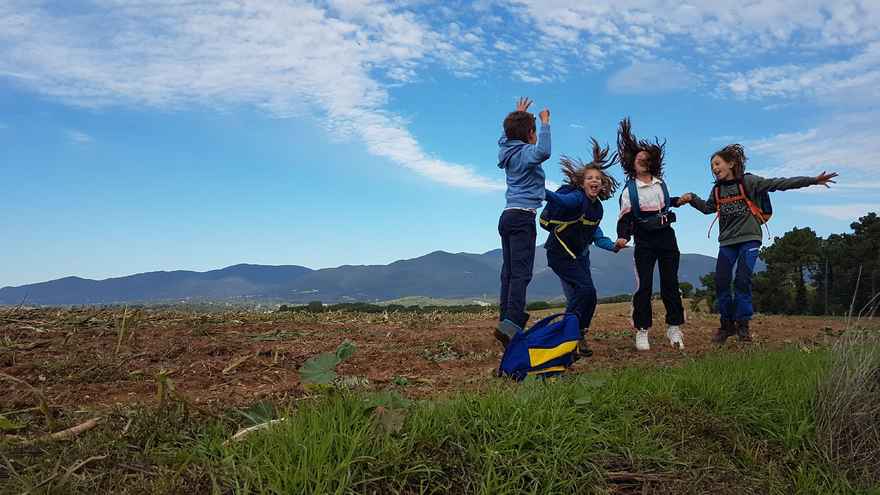
“Education doesn't change the world,
Education changes people,
People change the world” - Paulo Freire
Living through a global pandemic has not been an easy ride for us. But our children have been the ones most affected as they're still in their developmental stages and need consistent engagement through learning and contact. This week, we bring you a story full of inspiration, shedding a spotlight on a children-focused learning centre in Barcelona, Spain, 'The Chestnut Tree'. The project is based on Gaia guidelines providing meaningful opportunities for healthy development - at its heart, it's a sustainable, ecological program that supports environmental projects and the strengthening of communities. Values like responsibility, caring, respect and trust are the basis of the program.
This is a story of hope, love, pure intentions, perseverance and human connection. It shows how a community of specialists, environmentalists, activists, teachers and beautiful human beings came together to co-create a safe, educational space in nature.
We caught up with Mercia Eichmann, Founder/Headteacher, to find out more about the magic of the centre;
What was your motivation for starting The Chestnut Tree project?
"The impetus for this project came from the limitations in the educational conditions for
students during the Covid19 pandemic. My husband, Camille Eichmann (Swiss) and I
(Brazilian) graduated from the University of Zurich with a degree in Natural Sciences -
Geography. After 15 years in Switzerland working in different educational and private sector
jobs, I decided to apply for a Master's Degree in School Management at the University of
Barcelona and we moved to Catalunya.
Soon after, the Covid19 pandemic started and as I was researching at a maximum complexity school,
I was able to follow closely how much the pandemic has affected the lives of children, especially those
coming from lower-income families.
We often discussed the topic with various educational scientists and many affected
families and realised how important it would be to offer nature and ecology school concepts.
Schools in Spain have around 25 students per class - mask requirements and group rules are
strict, making time in nature all the more valuable. Although we understand the measures,
we believe that these restrictions have a negative impact on the emotional, intellectual and
physical development of children."
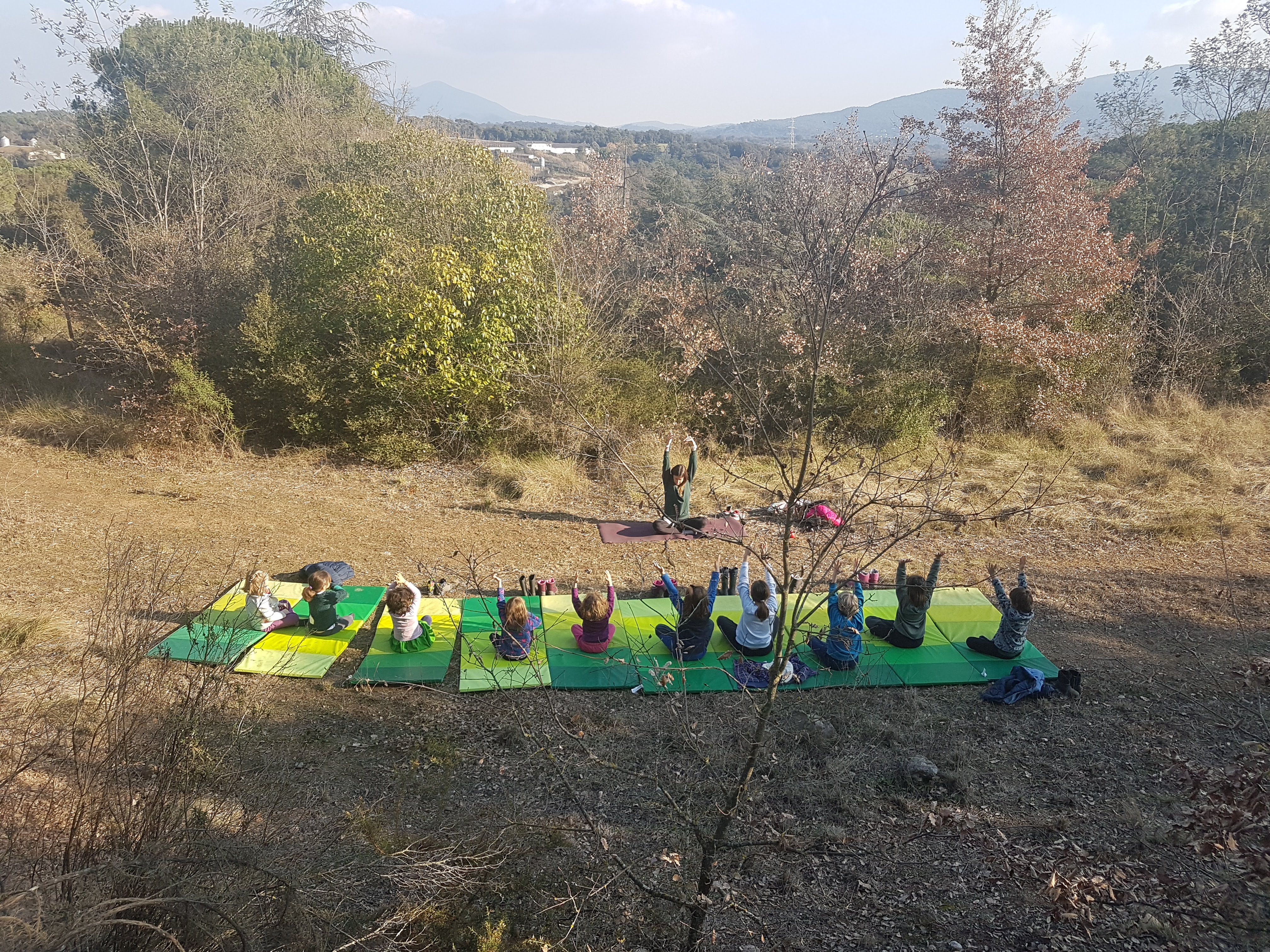
"It all starts in education because conservation ' is a matter of social choice,' and our children will be the ones making these choices in the future."
Is there a connection between ways of education and nature conservation?
"Absolutely, we believe that we care about those things we consider valuable to us, right?
How can we possibly value nature if we learn they are concepts of production and
consumption? One of our dear professors Dr Prof Jaboury Ghazoul, has long encouraged us
to take a more sensitive look at the ecological awareness required to break from these same
paradigms. He reminded us of Aldo Leopold's words on the social, historical and cultural
connections to nature "we abuse land because we regard it as a commodity belonging to us.
When we see land as a community we belong to; we may begin to use it with love and
respect."
It all starts in education because conservation “ is a matter of social choice,” and our children
will be the ones making these choices in the future. We hope to contribute to a more
sustainable education toward conservationism and ecological awareness."
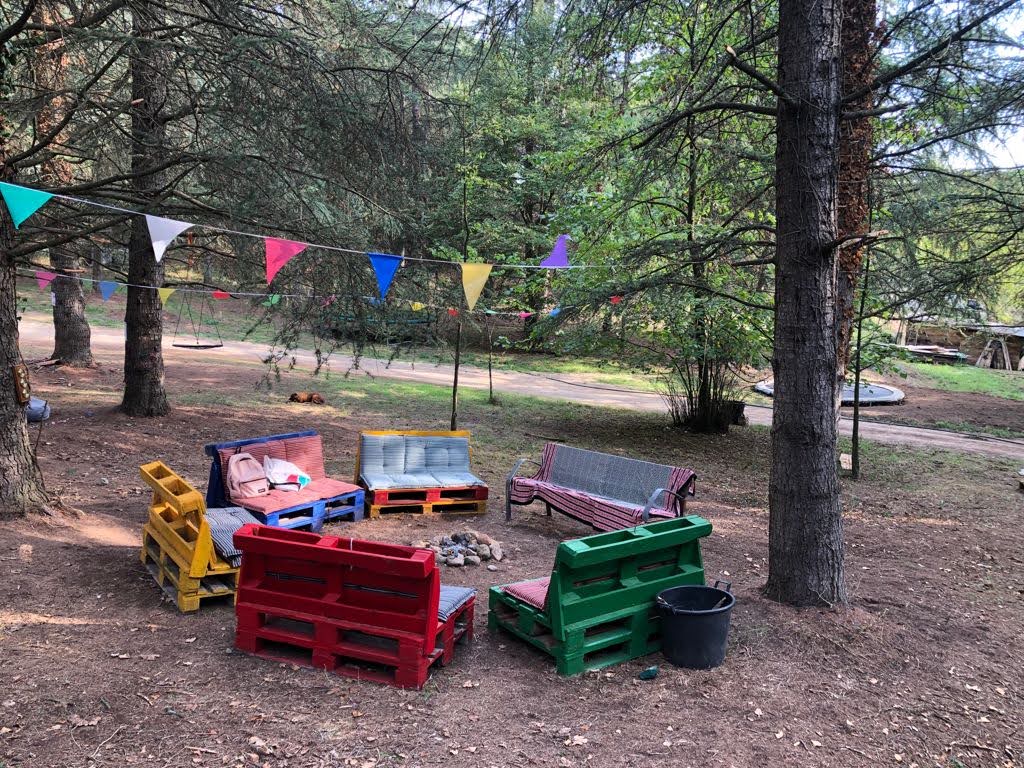
"Our partnership with Gaia Education was a game-changer. We studied many of the ecological programs out there, but Gaia offered us a more holistic overview that fits exactly what we were looking for - a sense of community, a non-violent program and an ecological curriculum based on the four primary dimensions of human experience."
How do the kids learn?
"Our school follows an international curriculum (Swiss/Catalan) merged by us and based on
outdoor environmental education and forest school concepts. We teach in 5 languages:
English, Catalan, Spanish, German and Chinese (with Chinese being replaced by French
next year). We balance soft skills (theatre, yoga, cooking, forest ecology, emotional
intelligence, gardening, arts, music) with conventional subjects, and we believe in a loving
and positive environment for learning. Most of our lessons take place outdoors, and our ratio
is one teacher per 7 students. Volunteers are welcome to share their knowledge and culture
with our students: Swiss, German, Czech, Italian and Syrian nationals have already
contributed to our program. We take care of 6 goats and sheep, two dogs and soon chickens
and two donkeys!
Our partnership with Gaia Education was a game-changer. We studied many of the
ecological programs out there, but Gaia offered us a more holistic overview that fit exactly
what we were looking for, a sense of community, a non-violent program and an ecological
curriculum which is based on the four primary dimensions of human experience. Some of the
positive outcomes are that a mindful practice brings a lot of awareness to children’s
behaviour. We have not yet needed to use any “correction” system, as everything is dialogue
and self-reflection is encouraged."

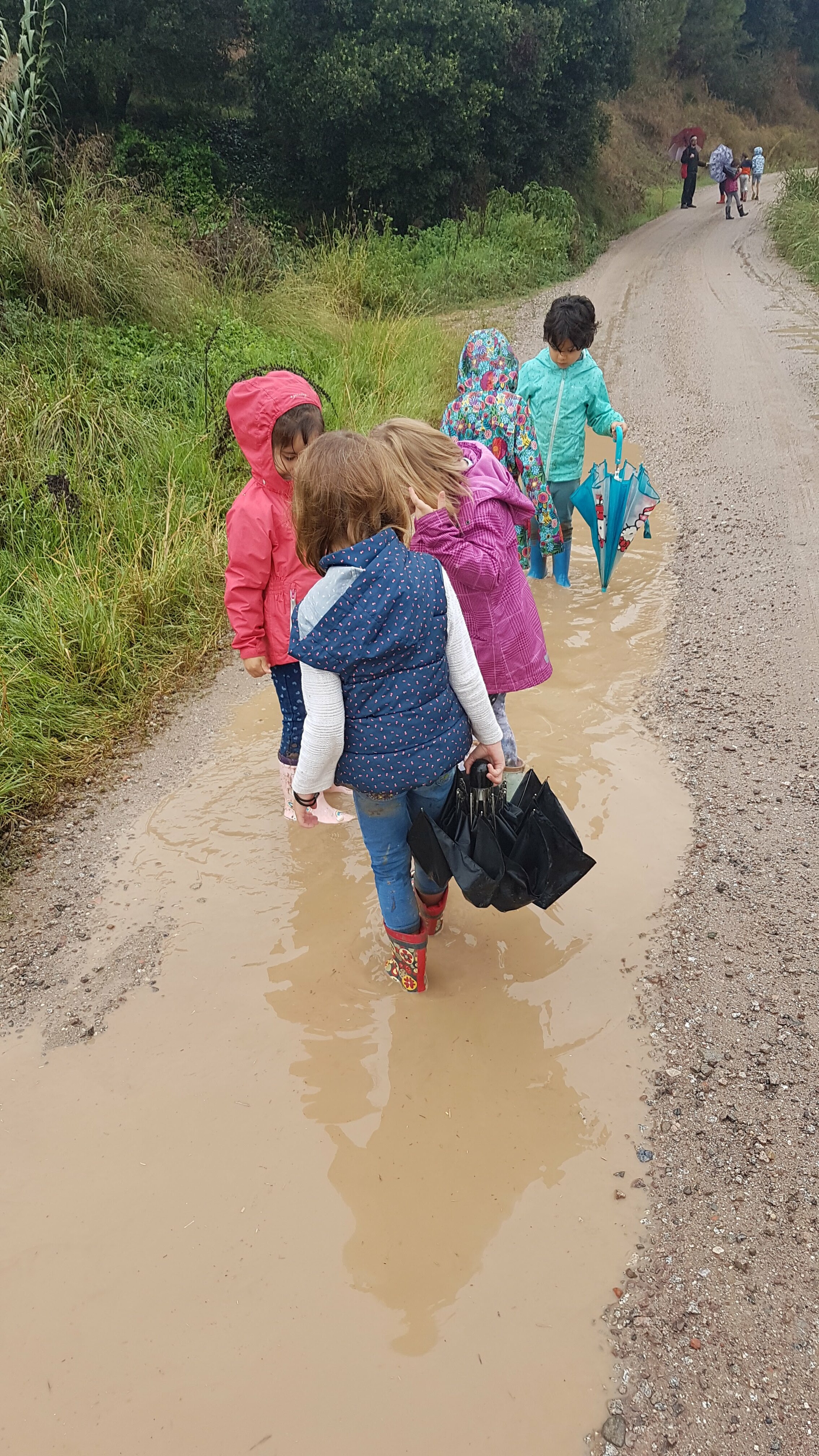
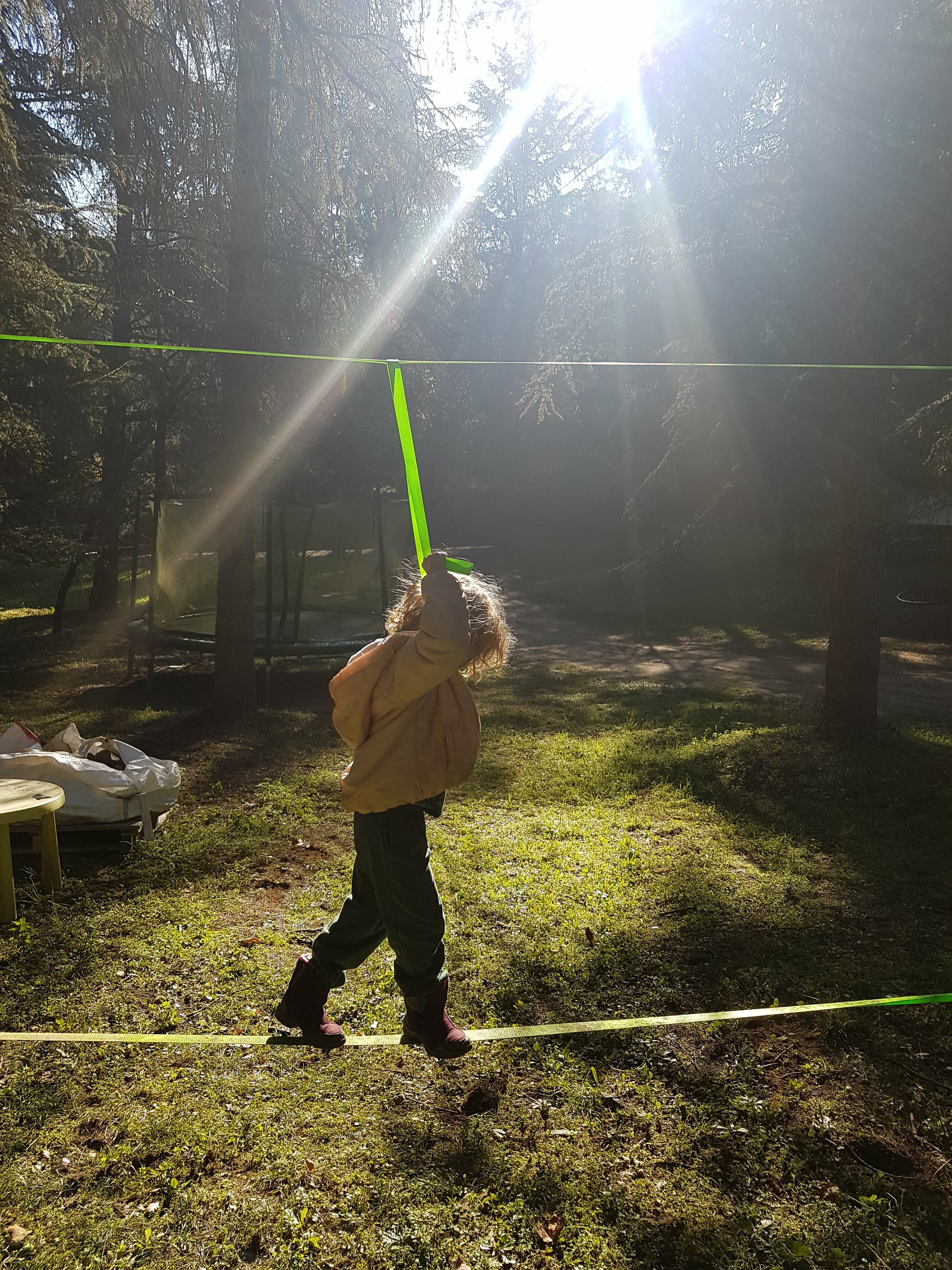
Starting a school is very challenging; how did it all come together?
"That is right; there is very little private and personal support. You get used to
receiving No's to people thinking you are crazy to start such a difficult undertaking, and
people who turn their back on you because they're not interested in helping."
But, do you know that quote from Paulo Coelho's book, the Alchemist? -
“When you want something, all the universe conspires to help you to achieve it”.
Eventually, all the right people came through to help us, and it was not only because we
wanted something, but because thoughts were aligned with the same intention, and these
intentions were honest and well-meant!
In two years, we also met many generous people. I would say people willing to share their
knowledge, making positive connections and extending one another a hand for all the right
reasons.
A violin teacher introduced us to Alena Reijchrtova, the owner of 7 hectares of
well-developed Mediterranean forest and natural/cultivated land. She offered us a school
environment perfectly tailored to our needs, and she became our partner. Together we have
done it all, from painting, cutting grass, cleaning toilets and designing the curricula.
Through Kalart, a coworking living community at Montseny, we learned
essential aspects of forming an association in Spain and the challenges we would
face.
Through my tutor at the University of Barcelona, Professor Gloria Soler and my dear
colleagues, I learned all the details about directing and managing a school.
And, of course, the families that decided to join us and put their trust in what we were doing
were so relevant. To trust their kids' education in us is undoubtedly a beautiful gift!
So, to make this possible, we have collected our modest means so that we have
been able to run the school successfully for seven months now. It is complex and intense work,
but we find so much joy in it."

Do you host a summer camp?
"Yes, and this is going to be our second summer camp. This year we carry on with our quote. “
Let nature be your teacher” our kids will have language and nature activities and, of course,
swimming pool time too!
A great summer, I must say, because we have a leadership program during
summer camp. High School students volunteer to assist counsellors during their activities."
If you'd like more information regarding The Chestnut Tree's summer camp, please follow this link https://www.thechestnuttree.org/summer-camp-2022.
Maybe you, your community or your organisation has a project they'd like help with creating? Get in touch with one of our team on info@gaiaeducation.org and ask how you can get involved in our Gaia School training!


0 comments
Leave a comment